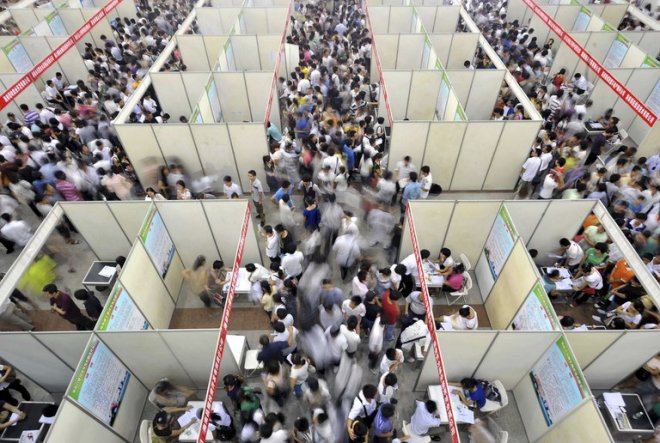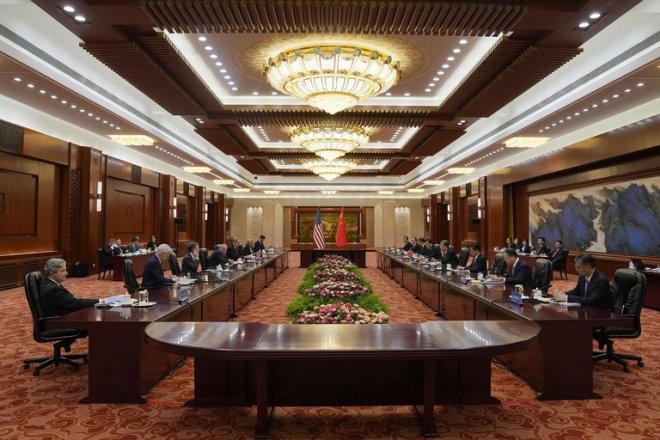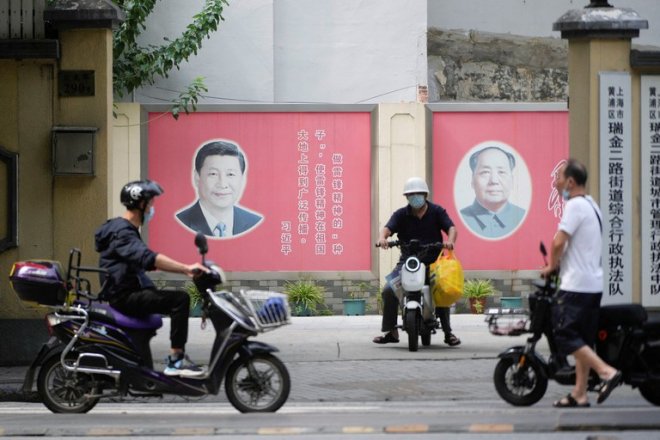China's Xi Jinping calls on young people to 'revitalize' post-lockdown rural economy
Chinese President Xi Jinping has called on the nation"s youth -- who are facing unprecedented levels of unemployment -- to seek out new opportunities in rural areas, echoing late supreme leader Mao Zedong"s call for urban youth to "go down to the countryside" during the 1966-76 Cultural Revolution.His latest slogan -- which comes after Xi has been out of the public eye in the wake of a U-turn away from his zero-COVID policy -- has been also taken up by the official Communist Party newspaper.
"[We should] encourage all kinds of talents to give full play to their skills and abilities, talents in our vast countryside, so as to build a strong and talented team for rural revitalization," a Dec. 25 editorial in the People"s Daily newspaper said.
Commenting after party leader Xi Jinping gave a speech on "rural revitalization" on Dec. 24 calling for "orderly guidance" of college graduates, skilled businesspeople, migrant workers and enterprises to "return to their hometowns," the paper said the paper said young people were "the most dynamic force" behind his plan.
"More and more young people have responded to the call and devoted themselves to the fervent practice of rural revitalization on the ground," the article said.
It said more than 11 million people had returned to rural areas from cities to start up their own businesses, "including a large number of young people."
"Our vast countryside is becoming a hot spot for young people to innovate and create," calling on young people to develop the kind of resilience necessary to "overcome setbacks and face difficulties over a long period of time."
While some went down to the countryside voluntarily in response to a mass movement launched by Mao, others were forced to go by their local authorities, losing any chance of attending university or regaining their former social status as a result.
Many died of famine, while others have spoken of even more horrific experiences during the Great Famines of the Great Leap Forward (1958-1962).
Others died while trying to flee the country, particularly to Hong Kong, then a British colony.
Grim job market outlook
Xi"s buzzword of "rural revitalization" comes as more than 49 percent of respondents to a third-quarter economic survey by the People"s Bank of China said they believe the current situation for job-seekers is "grim, difficult or do not know."
Labor market confidence fell by 2.3 percentage points in the third quarter, with only 8.9 percent expressing the view that the employment situation was "good" and that job-hunting was "easy."
Tseng Chih-chao of Taiwan"s Chunghwa Economy and Finance Association said the economy had been hard-hit by the recently abandoned zero-COVID policy, and would likely suffer a further hit from the current wave of COVID-19 infections sweeping the country.
 In this July 13, 2010 photo, college graduates attend a job fair in Haikou, capital of south China"s Hainan Province. A total of 6,500 job vacancies were provided at the job fair, which attracted more than 10,000 graduates. (Guo Cheng/AP Photo-Xinhua)
In this July 13, 2010 photo, college graduates attend a job fair in Haikou, capital of south China"s Hainan Province. A total of 6,500 job vacancies were provided at the job fair, which attracted more than 10,000 graduates. (Guo Cheng/AP Photo-Xinhua)"After a long time under zero-COVID, a lot of shops were unable to stay in business, and a lot of people were left with no income," Tseng said. "Unemployment among young people is around 18 percent, which would have been unthinkable before [COVID]."
She said she doesn"t expect to see any improvement any time soon, either.
"A lot of small- and medium-sized enterprises have closed down and even big companies too," she said. "We have seen that [tech giant] Xiaomi has been laying off employees lately, and we know they are facing serious problems."
"Unemployment ... could increase still further in the short term," Tseng said.
‘Man-made disaster’
Financial expert Si Ling said zero-COVID has been a "man-made disaster" for the Chinese economy.
"People were saying at the time of zero-COVID ... that the Chinese government"s approach was barbaric and highly irresponsible towards the markets," Si said.
"The relaxation of restrictions appears to be a good thing on the face of things, but they have already planted the seeds of disaster," he said.
Kevin Lin, managing editor of Asian Labour Review, said in a recent commentary for the Asia Times that the current youth unemployment "paints a bleak picture" for China.
"The fact that a fifth of young Chinese are now unable to land a job is a significant reversal of a decades-old trend in strong job creation that brought rising social mobility and prosperity," Lin wrote, warning that it could bring about fresh protests.
"High levels of youth unemployment and underemployment, combined with disaffection with their jobs, is a recipe for despair and disaffection," he said. "Without addressing these concerns in the coming years, China will see a generation of lost youth who may look for disruptive ways to voice their despair."
Economist Li Hengqing said Xi is now hoping to put his ideology center-stage once more after the government abandoned his zero-COVID policy in the wake of nationwide protests, mostly led by young people.
"He wants some airtime now to talk himself back into existence after hiding for a while," Li said. "Now he"s back ... using this opportunity to show his face again [after the failure of the zero-COVID policy]."
"This is what he has always done -- to come up with an idea," he said.
He said the idea was unlikely to provide a serious answer to the structural problem of youth unemployment, however.
"It"s precisely because youth unemployment is so serious that he thinks he can achieve several goals at a single stroke," Li said. "His policies have always been whimsical."
Translated by Luisetta Mudie. Edited by Malcolm Foster.
[圖擷取自網路,如有疑問請私訊]
|
本篇 |
不想錯過? 請追蹤FB專頁! |
| 喜歡這篇嗎?快分享吧! |
相關文章
AsianNewsCast























